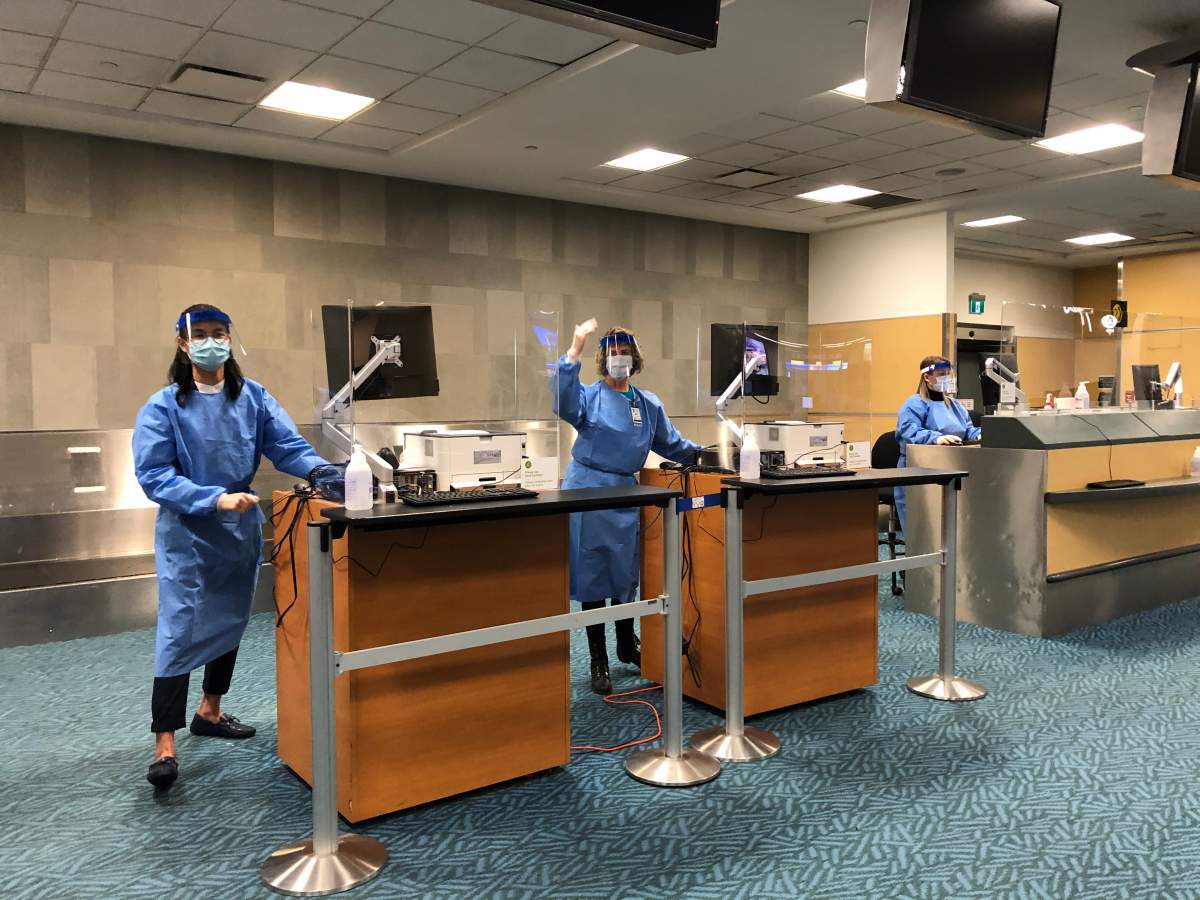The International Civil Aviation Organization (ICAO) is paving the way for the creation of COVID-19 vaccine passports as Canada continues to mull how to approach issuing such documents.

In a press release Wednesday, the ICAO says it has made new “technical specifications for a visible digital seal.”
The ICAO said the seal stores datasets for “test and vaccination certificates” in a two-dimensional barcode which can be made of paper or “screen-based.”
“Border control and other receiving parties can verify the data against established requirements efficiently and seamlessly, including through the use of traveller self-service kiosks and processes.”
The organization said the barcode is “digitally signed” for security, “with the signature being based on the same public key cryptographic infrastructure principles already used to support ePassport issuance and authentication by more than 145 countries globally.”
ICAO Secretary General Dr. Fan Liu, said as states “attempt to reopen their borders for air travellers, they are frequently requesting passengers to present proof of COVID-19 vaccination or testing as a prerequisite for entry.”

In a statement Wednesday, she said a lack of international standardization to date “has meant that reading and validating these proofs is frequently challenging,” adding that the VDS specifications will “help make the related processes and documents more efficient and less vulnerable to fraud.”

Get weekly health news
“The VDS solution also makes use of already-established infrastructure and procedures, meaning States can implement VDS barcodes quickly, and at minimal cost,” she continued.
Liu said in the coming weeks the ICAO will “deliver a series of regional webinars” to “enhance awareness of the VDS solution and provide initial guidance for State-by-State implementation.”
Global News sent a request for comment about the ICAO announcement to Transport Minister Omar Alghabra’s office, but did not immediately hear back.
However, speaking at a press conference earlier on Wednesday, Canada’s Minister of Intergovernmental Affairs, Dominic LeBlanc said the federal government, in partnership with the provinces, is “developing a kind of vaccine passport for Canadians who will be travelling abroad and then coming home.”
“We have been undertaking significant discussions with the European Union and with the United States,” LeBlanc said in French.
“But Prime Minister Trudeau, and the premiers of the provinces and territories have agreed on the importance of having a national document proving the vaccination while respecting that medical record information belongs to the provinces and territories.”

LeBlanc said “in the coming days” the government will be working with the Canada Border Services Agency with the IRCC as well who are responsible for passports.”
“And we’ll be working out that kind of technical detail and we will be ready if it does happen at the beginning of July as we wish. When the time comes, the border agents will have everything they need to ensure that there are temporary measures until the national vaccination evidence or vaccine passport is ready.”
Majority of Canadians support vaccine passports
A poll conducted by Ipsos exclusively for Global News last month found the overwhelming majority of Canadians supported the idea of a vaccine passport for air travel.
Seventy-two per cent of the survey’s respondents supported vaccine passports when flying on a plane, while 67 per cent said they liked the idea of the passports for indoor concerts, theatres and museums.
The same number supported the idea when attending post-secondary education.
— With files from Global News’ Katie Dangerfield
- Ontario influenza ICU admissions up 127% in past week, hospital association warns
- 3 kids die from influenza A-related complications since start of December in Ontario
- Hanukkah begins this weekend. What to know and how it’s celebrated
- Almost 200 children conceived from sperm donor with cancer-causing gene









Comments